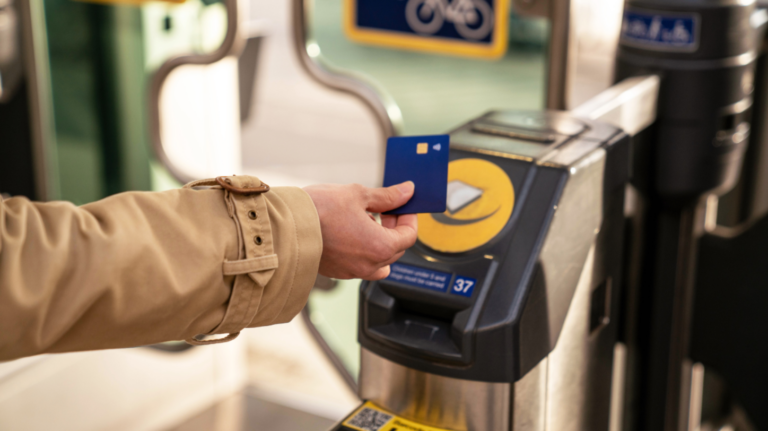Nearly 100 rail stations across the West Midlands and selected routes in Greater Manchester are to be fitted with London ‘Oyster card’ style technology enabling people to tap-in and tap-out of their local network, under new pilot schemes confirmed by the UK’s rail minister.
The project is part of the UK government’s plans to reform the railways, while also delivering on devolution deals aimed at giving local authorities a bigger say in how the network is run.
These trials will also pave the way for the future rollout of similar technology to more stations across the North and Midlands, funded in part by £100m reallocated from High Speed 2 (HS2),
UK rail minister Huw Merriman said: “We want to encourage more people back onto our trains, with tap-in technology meaning using our stations couldn’t be easier.
“Our railways have a long history, but projects like these – part of the government’s wider plans for reform – will ensure they have a bright future too.”
The West Midlands pilot is planned to cover 75 stations across the Transport for West Midlands (TfWM) area – including five currently under construction – and use existing Swift smartcards, enabling passengers to travel on local bus and tram services as well.
READ MORE: West Midlands Combined Authority announces £70m for cross-city bus routes
Greater Manchester’s pilot scheme is planned to include 17 stations on the Glossop to Manchester Piccadilly and Stalybridge to Victoria lines.
It will use contactless bank cards and devices and will support a wider ambition to deliver full multi-modal fares and ticketing integration across bus, Metrolink, rail and cycle hire as part of the Bee Network by 2030.
In preparing the pilots, the UK Department for Transport (DfT), Great British Railways Transition Team (GBRTT) and Rail Delivery Group (RDG) have worked with TfWM, the West Midlands Rail Executive, Transport for Greater Manchester and train operators.
Work will continue to finalise plans for the pilots ahead of launch in 2025.
Meanwhile, work being led by GBRTT on the development of new regional partnerships with TfWM and Transport for Greater Manchester is also underway, to help more towns and cities across the country benefit from greater local decision-making on local ticketing, services and stations.
Separately, the UK’s transport secretary and Merriman met with regional mayors on Wednesday to discuss their proposals for alternative rail connections between Birmingham and Manchester.
With plans in motion for industry to expand pay-as-you-go in the South East later this year, the pilot stations confirmed now will see the total number of tap-in-tap-out stations in England increase to around 500 in 2025.
The news comes as the RDG and industry partners – supported by £16.4m DfT funding – completed the final phase of rolling out barcoding technology, which allows customers at every station in Great Britain – outside devolved Merseyrail and TfL – to scan digital tickets at the gate.
Other recent milestones on the rail reform agenda include the launch of London North Eastern Railway’s Simpler Fares pilot following the rollout of single leg pricing on its network, while the government plans to bring forward a draft bill this Parliamentary session on Great British Railways for pre-legislative scrutiny.
Achievements and innovations in public transport will be celebrated at the third annual CiTTi Awards, which will be held on 26 November 2024 at the De Vere Grand Connaught Rooms in London. Nominations officially open in March 2024. Please visit www.cittiawards.co.uk to learn more about this unmissable event for the UK’s transportation sector.





